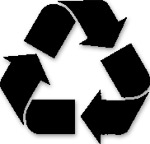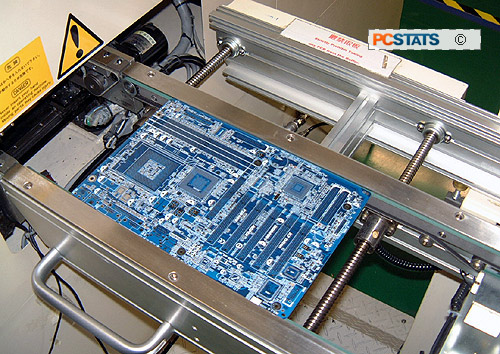So you've just come back from your favourite little electronics store and nestled in your outstretched arms is a pile of new toys, most of which is intended to
replace the aging hardware sitting by your desk. Maybe you've gone wireless
and picked up a new 802.11n wireless router, or a new Serial ATA hard drive to
replace the IDE drive that crashed last week... better yet, maybe you've
splurged and just brought home an entirely new and customized computer
system!
Now comes the dilemma. What are you going to do with the old computer or bits
of now retired hardware? That old 802.11b wireless router will probably find a home
in the garage as a "just in case" backup should the high-speed 802.11n unit ever fail, but what about the busted hard drive and the near-doorstop circa-1995 Pentium I computer?
It's a question we all face at one time or another, and in some cases we can
find friends or family interested in working relics. Yet for most of us who'd
rather not hang onto 30lb piles of obsolete computer junk, or assorted parts
like a busted hard drive, it's tempting to just chuck it to the curb-side trash.
Bad call.
The Disconnect: A Problem of E-Waste
The components of a computer contain a long list of chemicals, metals,
plastics and reclaimable materials in their make up. The hard drive for example
contains all sorts of materials; some are mundane like aluminum and steel, and
valuable like the trace amounts of gold on electrical connectors. Yet it's the
other trace amounts of materials generally found in electronic components like lead, arsenic,
cadmium and mercury that are a real concern. So how does this apply to that
obsolete computer sitting at the curb? Once you put this stuff out to the curb,
it will get taken away and more than likely get smashed into tiny bits, then
trucked off to a big hole in the ground where it will stay forever... hopefully
without leaching any of these potentially toxic substances into the water
table.

Ground water is the primary concern with all waste destined for landfills,
and given the long list of metals and exotic chemicals used in electronic
devices, this issue is becoming more timely. Right now a massive volume of
yesterday's technology is making its way to the trash, and landfills.
Canadian professor and world-renowned environmentalist Dr. David Suzuki often
refers to the lack of a "connect" when discussing the average person and our
environment. The "connect" he refers to is the idea that we don't see our
actions in the world and the result of those actions as related occurrences.
More often than not, most of us are content to know that a problem has gone
away, rather than know what happens after it's out of our sight. This is how
phosphates and dichlorides can invariably end up in our rivers and lakes; we
flush the stuff and forget about it. A parallel situation is brewing with
e-waste, and in an effort to stem the future effects of these components, many
governments are beginning to strongly regulate the materials that go into
electronics, and how take the issue of how they are disposed of at the end of
their useful life more seriously.
Product Sustainability
Lets be honest with ourselves for a moment. In the long run, most of us don't think about the environment outside of
what directly affects us... hot days, smog, litter in front of our house -
that sort thing. At the end of the day, the economic burden
we face on a business or personal scale is the price tag that weighs heaviest,
and this is a key facet of sustainability. If we
take a moment to rethink the economics of something as trivial as tossing
out an old junked computer, the idea of "garbage" can be viewed in a
whole new light. Consider the amount of time, money and energy spent in acquiring
and transporting the materials, not to mention actually making the thing in question.

When that old DVD player or Pentium II computer finally gets unplugged for
the last time, the idea of simply sentencing everything it's composed of to an
eternity as "just garbage" is rather odd. In the shadow of a looming demand for
energy and raw materials, sustainability basically means that the products we
produce should minimize their impact both at the beginning, and end of their
life cycles. Economically speaking, if we knew the price of copper were to rise
significantly, would it then make sense that we're tossing out tones of the
stuff in old electronics while still going through the trouble of mining tones
more from the ground?
Reclaiming materials from obsolete electronics can be tricky, and to be
realistic the face value of a good majority of an old PCs bits and pieces is low... However,
include the cost of energy to refine those raw materials, and the equation
certainly changes. Include the costs associated with disposal, and the equation
changes a little more.
This
is where we "reconnect", and laws such as RoHS and WEEE affect change
by preventing the first half of the equation from going down
the environmentally hazardous path...

